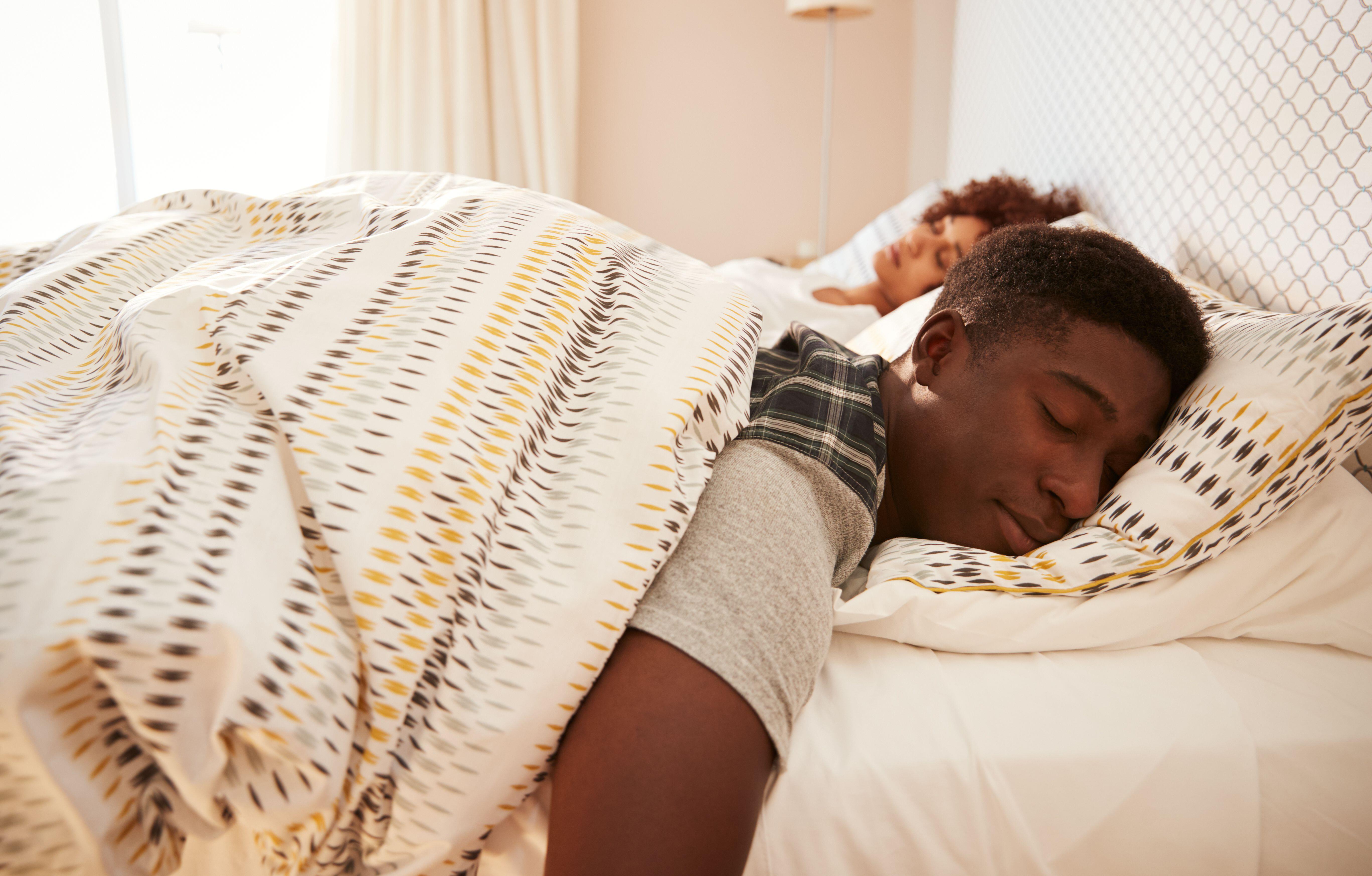Sleep quality more important than duration to stay healthy, research suggests
Researchers found that people who do not get quality sleep or enough sleep are nearly three times as likely to fall ill with respiratory viruses.

Your support helps us to tell the story
From reproductive rights to climate change to Big Tech, The Independent is on the ground when the story is developing. Whether it's investigating the financials of Elon Musk's pro-Trump PAC or producing our latest documentary, 'The A Word', which shines a light on the American women fighting for reproductive rights, we know how important it is to parse out the facts from the messaging.
At such a critical moment in US history, we need reporters on the ground. Your donation allows us to keep sending journalists to speak to both sides of the story.
The Independent is trusted by Americans across the entire political spectrum. And unlike many other quality news outlets, we choose not to lock Americans out of our reporting and analysis with paywalls. We believe quality journalism should be available to everyone, paid for by those who can afford it.
Your support makes all the difference.Experiencing good quality sleep is more important than getting the recommended seven to nine hours when it comes to keeping illnesses at bay, a study suggests.
New research has found that people who do not get quality sleep or enough sleep are nearly three times as likely to fall ill with colds, flu and other respiratory diseases such as Covid-19.
But it also showed good quality sleep can effectively make up for sleeping less than the recommended amount, when it comes to bolstering the immune system to help fight viral infections.
Professor Neil Walsh, of Liverpool John Moores University, said his team’s findings – published in the journal Sleep – “change the way we should think about sleep and health”.
Sleeping well can trump sleeping long in terms of our immunity to illness
The lead researcher told the PA news agency: “Sleep is important for mental and physical health, including our ability to fight infection.
“The National Sleep Foundation recommends adults get seven-to-nine hours sleep each night.
“Yet many of us restrict our sleep to make way for our busy lives – for example, we regularly restrict our sleep when we get up early for our weekday commitments.
“But when you restrict your sleep, you are not necessarily going to be more likely to get sick – it really depends on your quality.”
In a first-of-a-kind study, the scientists followed 1,318 new recruits to the military for 12 weeks.
That is an extremely useful message in our hectic world where sleep is often sacrificed for other pursuits
Their work involved tracking the participants’ sleep patterns and health in the weeks before training and after joining the military, where they had to follow strict wake-up routines.
On average, the participants were found to sleep two hours less during military training than civilian life.
However, the researchers noted that more than half of those with sleep restriction rated their sleep as good quality.
Recruits who reported sleep restriction during training were nearly three times as likely to suffer with respiratory infection, according to the team.
This was after taking into account factors that influence these types of illnesses, such as the time of the year and smoking.
However, the researchers found that sleep restriction only increased infection among those reporting poor sleep quality, while good sleep quality protected against respiratory illnesses, despite the shorter duration.
Prof Walsh told PA: “There are two very key messages here: firstly that restricted sleep patterns can result in more frequent illness, and secondly and more surprisingly, that sleeping well can trump sleeping long in terms of our immunity to illness.
“That is an extremely useful message in our hectic world where sleep is often sacrificed for other pursuits.”
Based on the findings, Prof Walsh said there are five things people can do to improve sleep quality. These include:
– Adopting a consistent sleep schedule (similar bed and wake time), including weekends
– Avoiding large meals, caffeine and alcohol close to bedtime
– Ensuring the bed and pillow are comfortable and that the room is cool, dark and quiet
– Establishing a relaxing bedtime routine – going screen-free 30 minutes before bedtime and going to bed when sleepy
– Undertaking exercise during the day to help fall asleep.